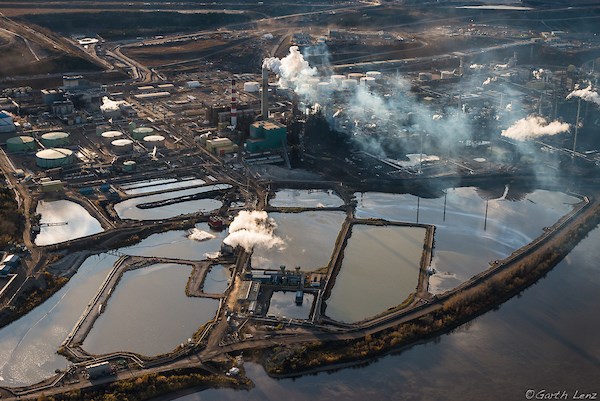Since Alberta introduced its Emissions Reduction and Energy Development plan last April, the provincial government has made "no meaningful progress" in the development and implementation of the plan, according to an analysis released Friday by the Pembina Institute.
The assessment report found that in the last year, the government of Alberta had not begun preliminary stakeholder consultations, which it described as a "key first action in identifying how it will practically reduce emissions across the economy." The province has also not delivered interim emissions targets for its ultimate goal of a carbon-neutral economy by 2050, or developed clear policies for short term emission reductions.
Report author, and director of Pembina Institute's oil and gas program, MC Bouchard, said failure to implement clear emissions strategies comes with serious economic and environmental risks.
"In 2024, decarbonization policy is economic policy. Alberta is placing its economy at risk as it falls further behind in having a clear plan to reduce emissions, especially across its heavy industries, and embrace diversification of the economy to the clean growth sectors of the future," Bouchard said.
Alberta's greenhouse gas emissions plan aspires to match other national and global commitments to attaining carbon-neutrality by 2050. The province has said it will achieve this by leveraging existing infrastructure, relying on emerging technologies, and attracting investment "by creating a regulatory and investment climate that is predictable, agile and certain."
Province lagging behind in emissions reductions
Since 2005, all but two of Canada's provinces have made significant reductions in greenhouse gas emissions. In that time, Alberta's greenhouse gas emissions have increased by 9 per cent, and Manitoba's have risen by 2 per cent, according to data from Environment and Climate Change Canada. New Brunswick led the country with a 39 per cent reduction since 2005 baseline emissions levels.
The report notes Alberta made some progress in decarbonizing the electricity sector, largely thanks to the phase out of coal in 2015, but "without prompt and decisive action to reduce emissions from Alberta’s heavy industrial sectors (especially oil and gas production), the gains of the coal phase-out risk being undermined."
"Canada is taking steps to move towards a clean, modern economy, and Alberta is choosing not to get on board. Since 2005, Alberta’s emissions have grown, while they’ve fallen in almost every other province. This matters to Albertans, who have a right to expect their government to recognize the global shift towards low-carbon economies and energy resources, and make sure they don’t get left behind," said Simon Dyer, deputy executive director of the Pembina Institute.
Canada's oil and gas sector is responsible for about 28 per cent of the country's GHG emissions, and accounts for more than half of emissions in Alberta. Research published last year in Proceedings of the National Academy of Sciences found that these emissions statistics are likely low, and that emissions from the oilsands are under reported by as much as 65 per cent, releasing an estimated 31 million tonnes more carbon dioxide than reported by industry programs.
Pembina Institute is calling on the government to take a sector-by-sector approach to emissions targets, strengthen existing regulations, lower oil sands emissions limits, and do more to tackle oil and gas methane emissions.
Alberta's Ministry of Environment and Protected Areas did not say when stakeholder consultations are expected to begin.
"Alberta’s emissions are steadily in decline, even with increases in production. In recent months, Alberta has announced investments in small modular nuclear reactors, hydrogen, carbon capture, and many other emissions reducing technologies across all sectors. Each of these actions, are part of Alberta’s plan to reduce emissions," Rebecca Schulz, Minister of Environment and Protected Areas, said in a statement on Friday.




